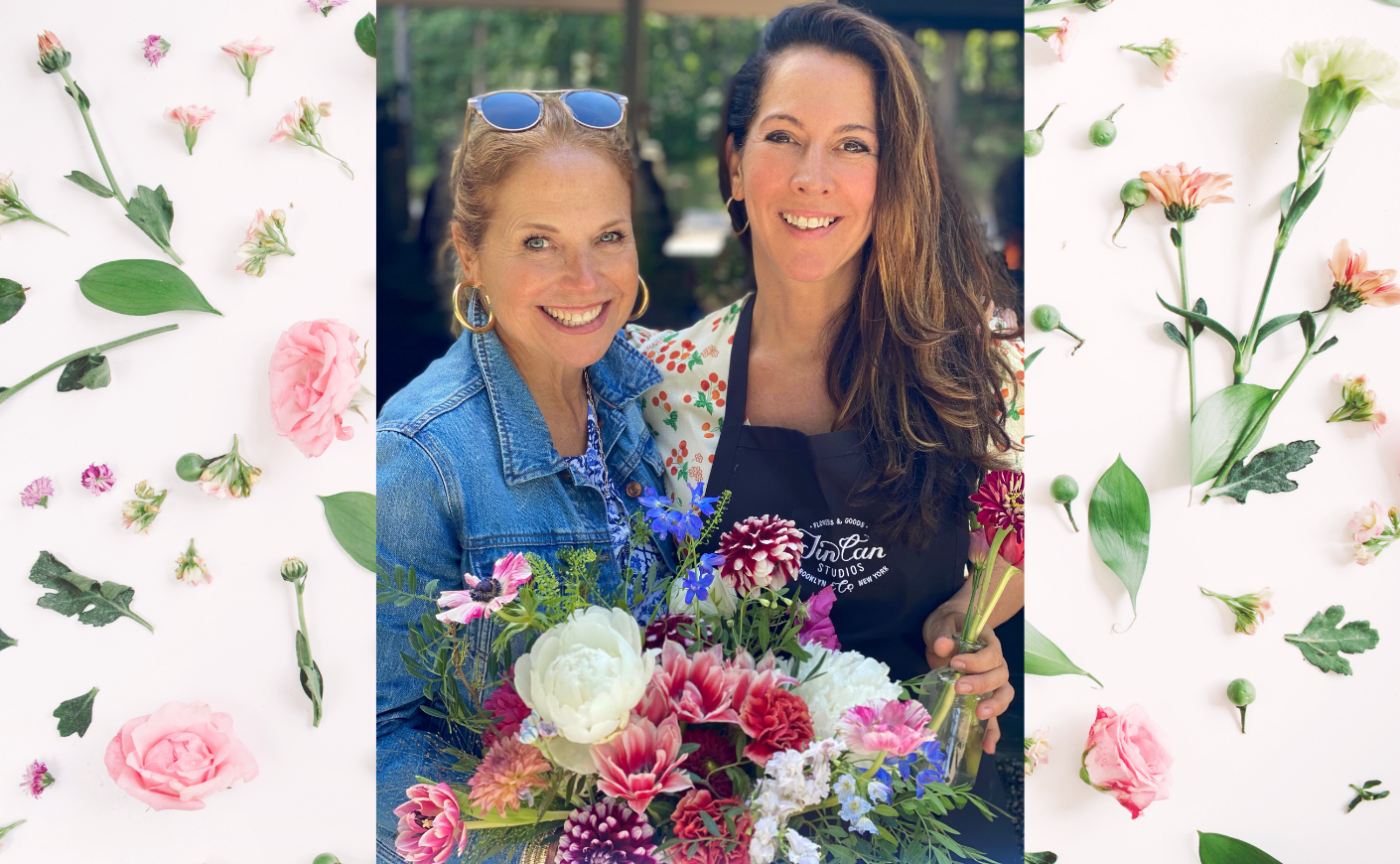You might recall admiring the astounding flower arrangements from Katie’s daughter’s wedding last summer. Those bright colors! Those lush blooms! It was like botanic eye candy. After Ellie’s wedding, we spoke to her florist Ingrid Carozzi, founder of Brooklyn’s Tin Can Studios, about her inspiration for the momentous event.
And now, you can get that look yourself: Carrozi released a book on flower arranging, and it’s full of expert-approved secrets. Her second book focuses on finding the right flower arrangement for your home. Whether it’s a minimal everyday setup or an ornate design for a garden party you’re going for, there’s an arrangement for you in this guide.
Katie caught up with Carozzi about how she assembled this gorgeous book, how to find the right floral arrangement for your home and more.
Katie Couric: Congrats on Flowers by Design, your new book on flower arranging! How did you come to write this new book?
My first book Handpicked, did really well, so my publisher reached out to ask if I wanted to write another book. I was excited for the opportunity because the first book has inspired so many people to start making flower arrangements at home using my simple methods! In addition, the book actually inspired quite a few people around the world to become florists: I’ve received many messages over the past few years from people in Sweden, Australia, Finland, and of course, the United States. They were unhappy in their jobs and decided to take a stab at floristry after reading my story and approach to flower arranging.
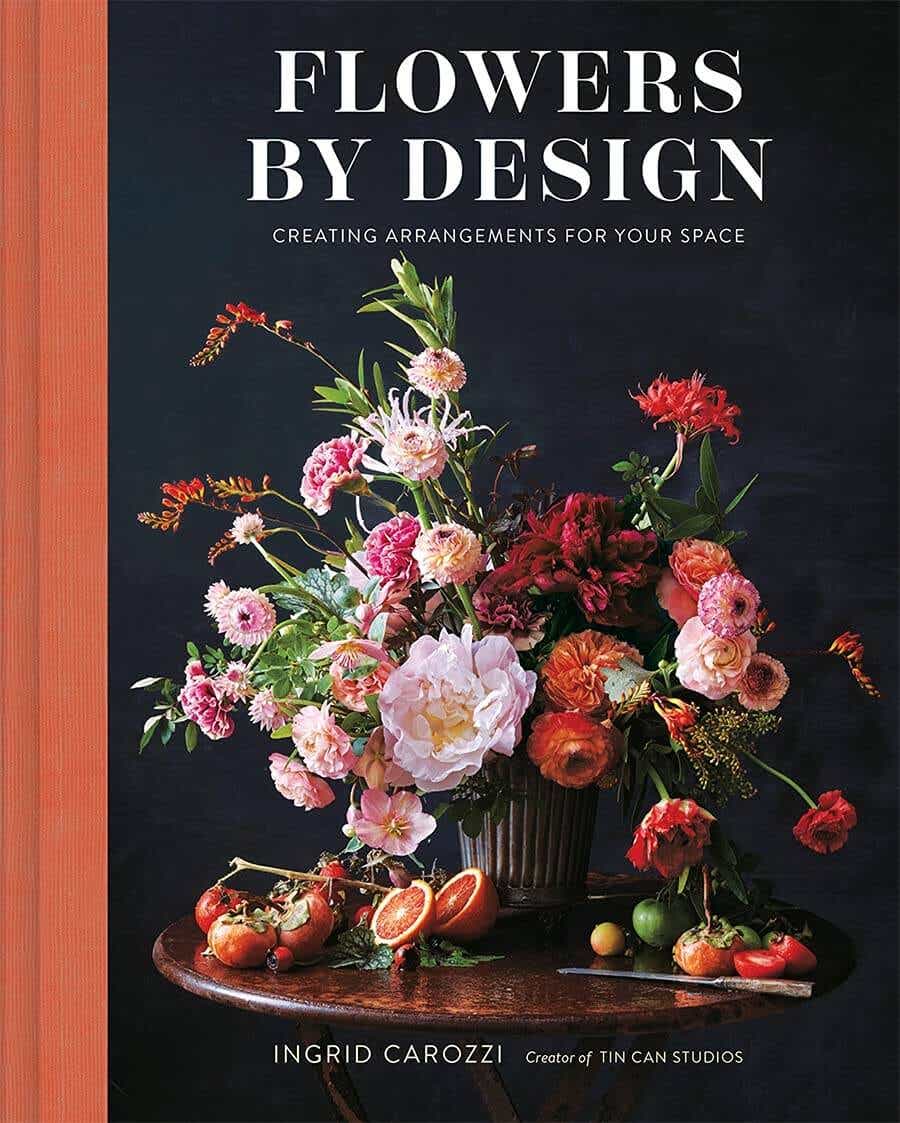
Why do you think that's the case?
Most importantly, I think my approach helps people relax and get over their intimidation when it comes to flower arranging. I always ask, “What is the worst thing that can happen?” If you cut a stem too short, all you need to do is move it to a different spot, there’s always somewhere in the vase it will fit! And if it doesn’t, just stick that one in a bud vase!
Bud vases are so charming — and placing flowers in bud vases is flower-arranging, too! What's your “approach”?
Basically the sustainable “unseen mechanics” I use to make it easier to move your flowers around when arranging. The main ones I use are crumpled-up chicken wire and pin flower frogs (also called Kenzans). I also have a pretty distinctive style that's more organic and loose, which I believe makes it feel more approachable — the style is anything but ball-shaped. In Flowers by Design, I give examples of wonderful vessels, tools, and arranging techniques that encourage everyone to come up with their own flower arranging style.
If I understand correctly, you don’t teach any techniques using that green foam stuff?
That’s correct. Unlike chicken wire, flower frogs, or natural, biodegradable base alternatives, so-called floral foam is terrible for the environment, does not decompose, and is full of harmful chemicals so I never use it! I’m proud to say that I have been teaching sustainable floristry at various flower schools for the past eight years now and am considered a pioneer in that field.
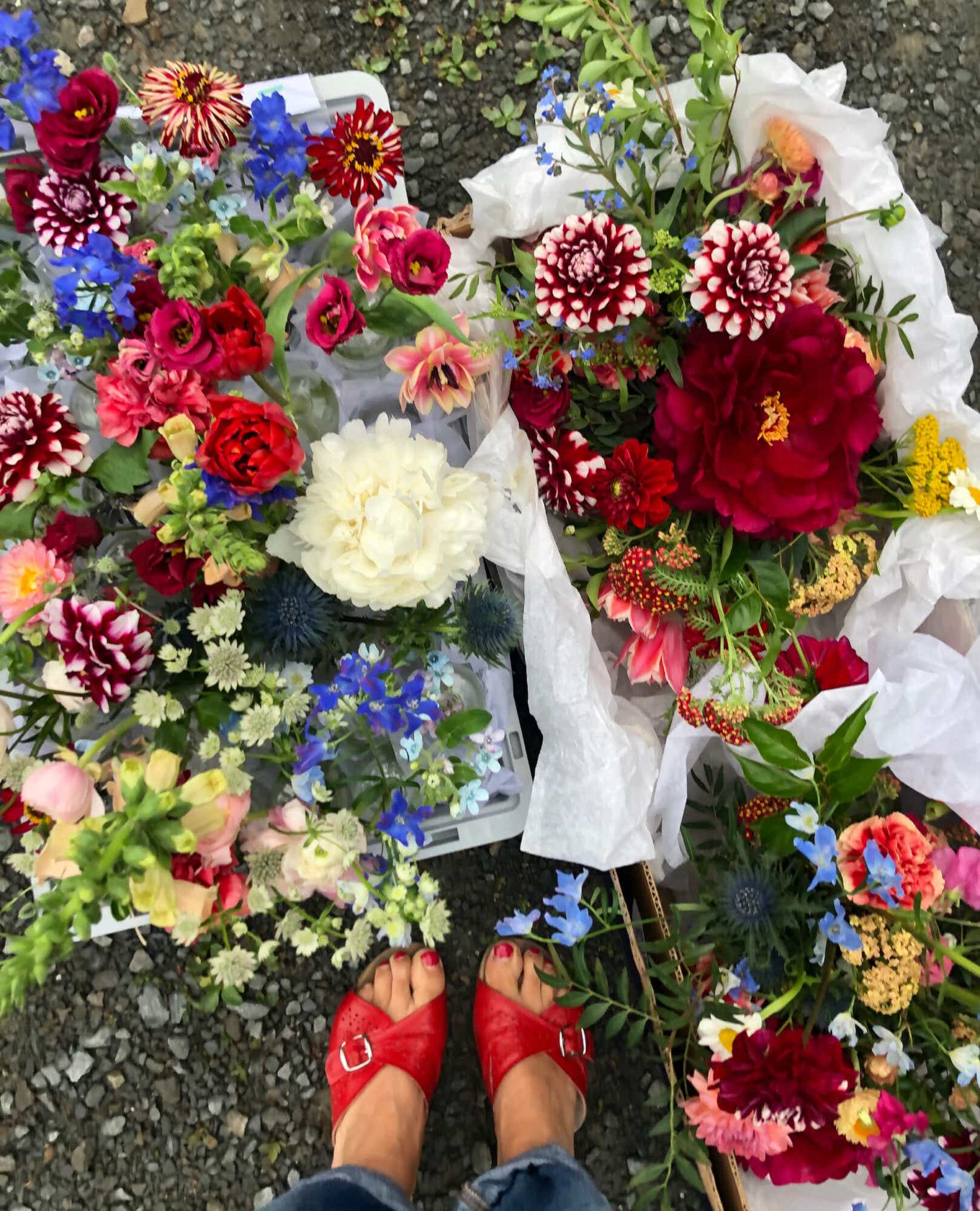
That’s great! But once you understand the basics you still need to know where to position the flowers, don’t you?
Yes, in the book I advise people to follow some basic rules and look at the images for shape and placement, but at the same time, encourage people to find their unique style. In addition, it’s quite likely that you might not be able to get your hands on the exact same flowers as the ones I use. In that case, I encourage people to look at the size and shape of the flower you need to substitute and replace it with something similar. You might even end up with a completely different color palette. That's the best part to me — no arrangement will ever look exactly the same!
How did you come up with this approach?
I often compare flower-arranging to cooking: I have tons of cookbooks but I use them mainly to understand the basics of what I'm trying to achieve. I look at a recipe to understand what kind of ingredients I need to use, then I do things my own way — I might add some of my favorite spices, swap out the protein for another, or cook at a higher temperature. So, it comes naturally to me to apply the same ideology to flower-arranging. And as I always say, you can never have too many cookbooks or flower books!
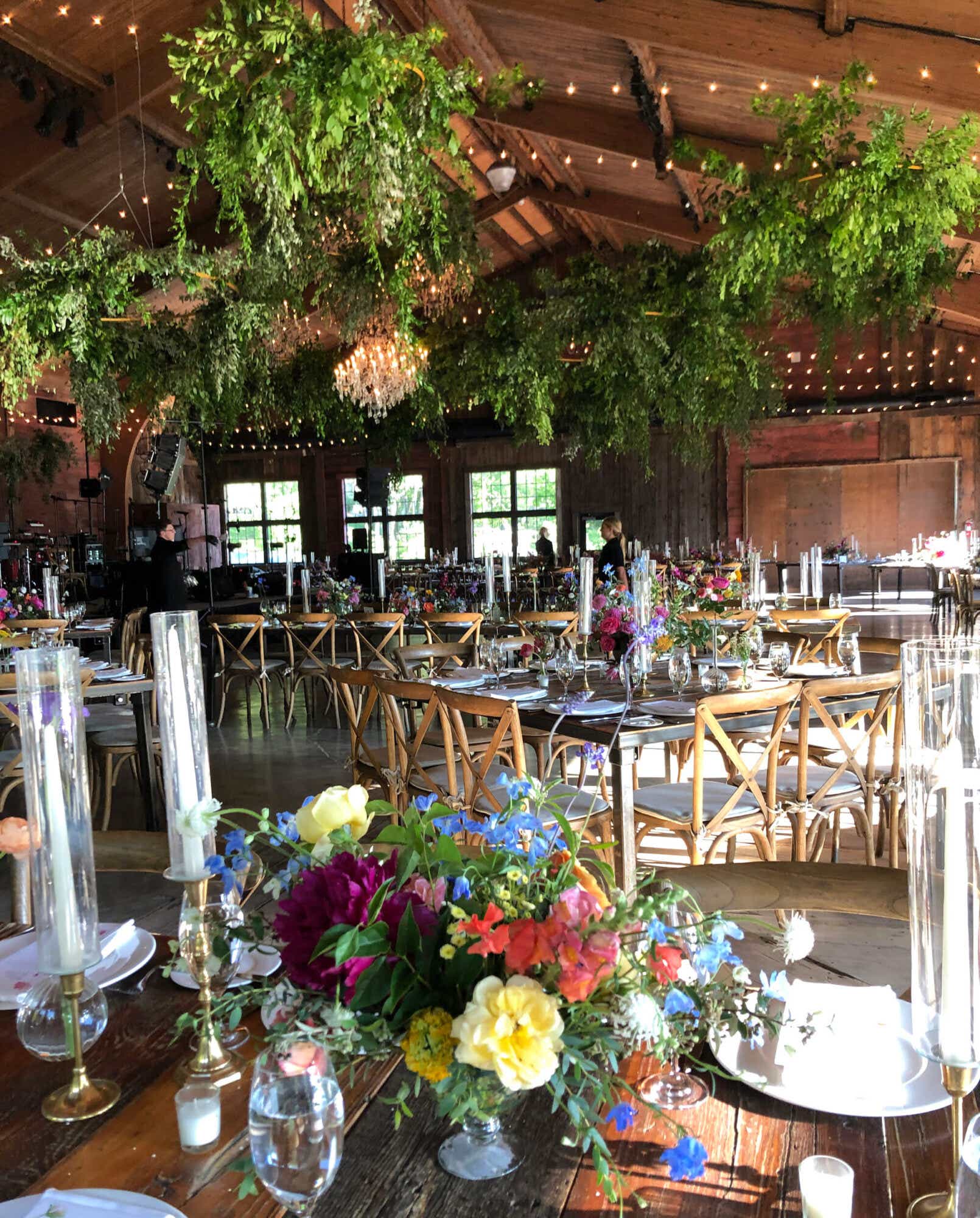
Yes! But what about people who like following a recipe more strictly?
That’s totally fine too! All of my recipes list out the flower types I used, and step-by-step instructions.
I also noticed that quite a few of your friends are featured in the book.
Yes! To me, the best part of working with flowers is the part where I present the flowers to the person I made them for! Just like serving a meal — it’s not that fun to eat your food alone, and that’s why I invited people who've inspired me over the years to be part of the book. They're all very successful in their respective fields and have a love for flowers and precise ideas about them, so I featured them as tastemakers in the book! And speaking of similarities with food and cooking, one of them is a highly acclaimed Swedish chef.
With your company Tin Can Studios, your focus is on larger events and weddings. It’s interesting how you say that you prefer when arrangements aren’t identical. Is that always how you work at events? It sounds quite a bit like how you designed my daughter Ellie’s wedding!
Yes, for our events and weddings, our goal is for each arrangement to tell a different story, that way we draw people into the room to look at every single one. Just like different chapters in a book. I also want people to see each flower as the miracle it is, that is my way to truly honor each flower. (Another expression we use to describe this is that the arrangements should look like “sisters not twins.”)
Do you have events or clients you are extra proud of?
Well of course, Ellie’s wedding! That was so much fun with all the explosions of color. I've also done flowers for Carolina Herrera, John Legend, The Queen of Sweden, and Shawn Mendes, to name a few. I've also tied bouquets for Anna Wintour and Chelsea Clinton (while they watched). They were both extremely sweet and grateful for the flowers, and Ms. Wintour was not at all like the stories I'd heard.
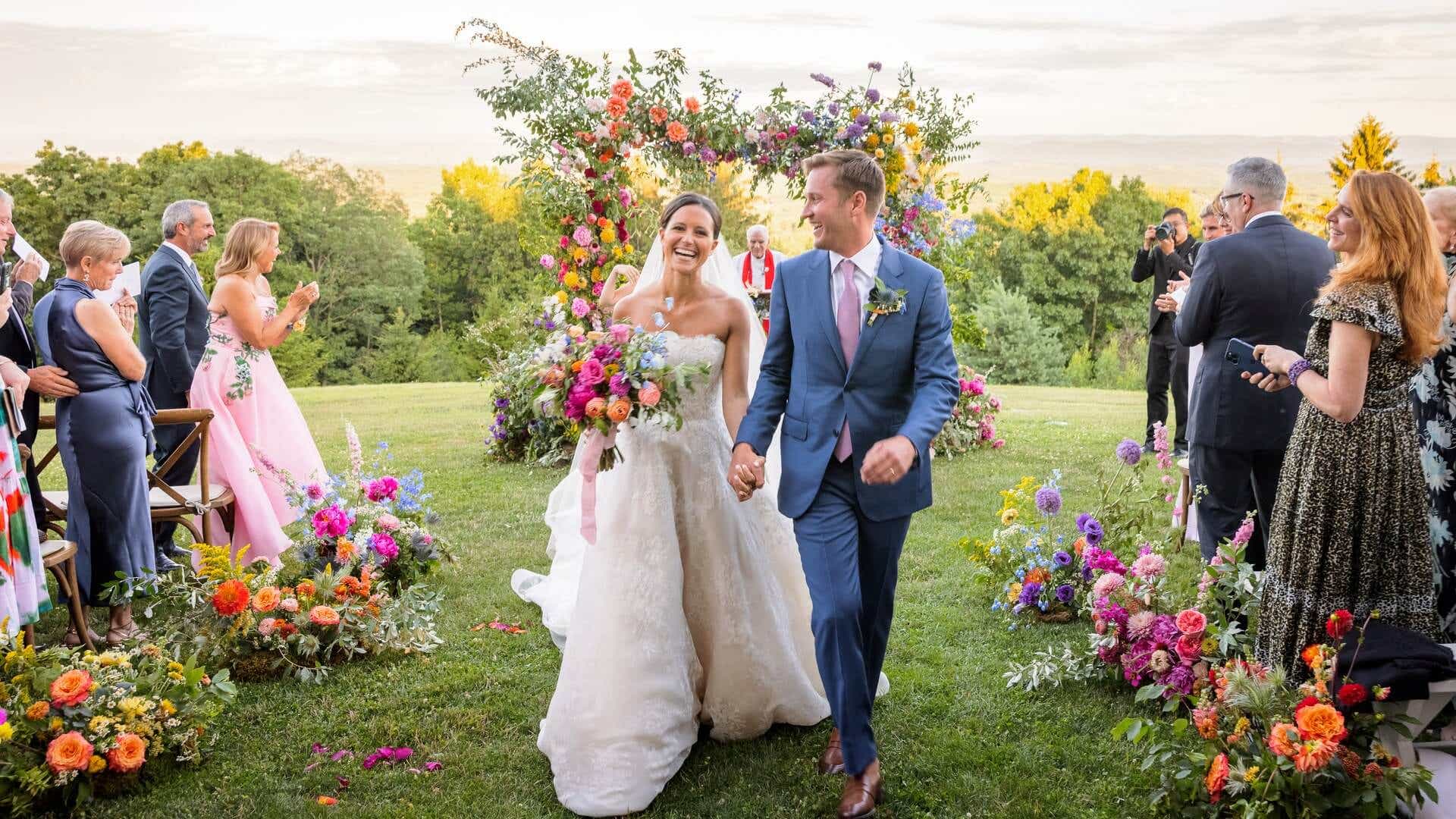
I noticed in your book that you mentioned quite a few men as clients and tastemakers.
Absolutely! I know from all of my experience that men love flowers just as much as women, sometimes even more! Anything else you hear is just a cliché or cover-up!
What's your most important advice to someone who wants to make arrangements at home?
Relax and enjoy it. There are psychological studies that indicate that flowers trigger happy brain chemicals like dopamine. Flower arranging should be fun, not stressful. I truly think that flowers serve the purpose of bringing us joy and we all deserve the pleasure of interacting with them regularly. That could be as simple as putting a few single stems in a little collection of bud vases or as advanced as a large, lush garden arrangement!







